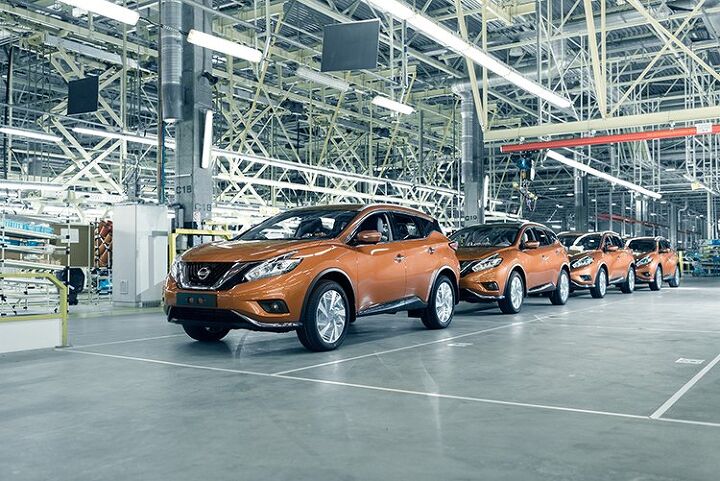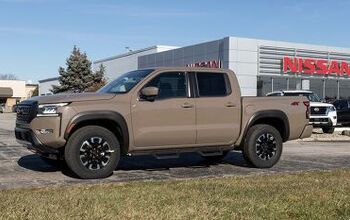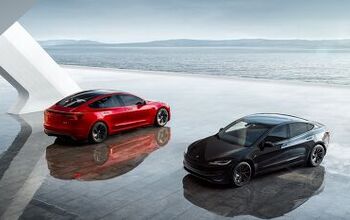Ghosn: Suppliers Essential to Nissan's Future Success

Carlos Ghosn, CEO of the Nissan-Renault-Mitsubishi Alliance, says automakers are going to have to get comfortable with suppliers doing more of the work as the industry evolves. With in-car technologies progressing more rapidly than ever before, the alliance head says engineers will have to lean on parts providers to take the burden off its own engineers.
Ghosn even said he had recently spoken to supplier who accused him of not listening. “They said we are duplicating [their] work,” the CEO recalled.
“They said, ‘We are developing the same things, and at the end of the day, you’re going to order parts from me, and you’re going to pay twice — for your own development and for mine. So why don’t we start from the beginning to work together?’ That’s an important point,” he said. “We are now probably one of the largest buyers in the world.”
The automotive collective intends to sell more than 14 million vehicles annually by the end of 2022, which represents an increase of about 3.5 million units from the expected volume for 2017. The strategy includes more shared platforms and powertrains between brands, a dozen EV models, and a fleet of autonomous taxis.
More advanced technologies, like batteries and autonomous hardware, are already heavily dependent upon third-party suppliers. Ghosn doesn’t expect that to change in the years to come.
“We’re in a period where the demand for resources is huge,” he explained in an interview with Automotive News. “There are so many breakthroughs coming. Artificial intelligence, all the components of autonomous drive, connectivity — there are plenty of things coming our way. And then you have your usual business and also the emission regulations, where you have to develop and adapt diesel and gasoline engines, transmissions, electric cars and motors. The workload on an individual company’s engineers is huge.”
“You need to make decisions about, what are the parts you’re going to build yourself, and what are the parts you’re going to delegate to your suppliers?” he said of the industry. “We have to be pragmatic. What’s important is getting the best technology. Nobody has the resources to do everything.”
Ghosn stepped down from his position as Nissan’s CEO in April so he could devote his entire attention to the alliance between Renault, Mitsubishi, and Nissan — with volume being is the name of his game. He claims not to be overly concerned with the intensified role of suppliers are playing in terms of advanced electronics.
“The difficulty of the task right now is that we’re in an era when most of the parts and technologies we need do not exist yet,” Ghosn stated. “Because of the huge amount of new technology coming, the R&D costs are going to go up. We need to converge and have common platforms. And we need to have a much more serious conversation about what work should be done outside the company.”
[Image: Nissan]

A staunch consumer advocate tracking industry trends and regulation. Before joining TTAC, Matt spent a decade working for marketing and research firms based in NYC. Clients included several of the world’s largest automakers, global tire brands, and aftermarket part suppliers. Dissatisfied with the corporate world and resentful of having to wear suits everyday, he pivoted to writing about cars. Since then, that man has become an ardent supporter of the right-to-repair movement, been interviewed on the auto industry by national radio broadcasts, driven more rental cars than anyone ever should, participated in amateur rallying events, and received the requisite minimum training as sanctioned by the SCCA. Handy with a wrench, Matt grew up surrounded by Detroit auto workers and managed to get a pizza delivery job before he was legally eligible. He later found himself driving box trucks through Manhattan, guaranteeing future sympathy for actual truckers. He continues to conduct research pertaining to the automotive sector as an independent contractor and has since moved back to his native Michigan, closer to where the cars are born. A contrarian, Matt claims to prefer understeer — stating that front and all-wheel drive vehicles cater best to his driving style.
More by Matt Posky
Latest Car Reviews
Read moreLatest Product Reviews
Read moreRecent Comments
- Loser I love these MN12 vehicles. We had a 92 Cougar, my dad had an 89, mom and brother both had T-birds. Wife and I still talk about that car and wish they still made cars like these. It was a very good car for us, 130,000 miles of trouble free and comfortable driving. Sold it to a guy that totaled it a month after purchase. Almost bought a 97 T-bird the 4.6 when I found out it was the last of them but the Cougar was paid for and hard to justify starting payments all over.
- CoastieLenn I would do dirrrrrrty things for a pristine 95-96 Thunderbird SC.
- Whynotaztec Like any other lease offer it makes sense to compare it to a purchase and see where you end up. The math isn’t all that hard and sometimes a lease can make sense, sometimes it can’t. the tough part with EVs now is where is the residual or trade in value going to be in 3 years?
- Rick T. "If your driving conditions include near-freezing temps for a few months of the year, seek out a set of all-seasons. But if sunshine is frequent and the spectre of 60F weather strikes fear into the hearts of your neighbourhood, all-seasons could be a great choice." So all-seasons it is, apparently!
- 1995 SC Should anyone here get a wild hair and buy this I have the 500 dollar tool you need to bleed the rear brakes if you have to crack open the ABS. Given the state you will. I love these cars (obviously) but trust me, as an owner you will be miles ahead to shell out for one that was maintained. But properly sorted these things will devour highway miles and that 4.6 will run forever and should be way less of a diva than my blown 3.8 equipped one. (and forget the NA 3.8...140HP was no match for this car).As an aside, if you drive this you will instantly realize how ergonomically bad modern cars are.These wheels look like the 17's you could get on a Fox Body Cobra R. I've always had it in the back of my mind to get a set in the right bolt pattern so I could upgrade the brakes but I just don't want to mess up the ride. If that was too much to read, from someone intamately familiar with MN-12's, skip this one. The ground effects alone make it worth a pass. They are not esecially easy to work on either.


































Comments
Join the conversation
Trending not so good for traditional auto manufacturers. As they'll just be left with making bodies once standardized batteries and EV platforms become out-sourced.
Ghosn is a hypocritical BSer. When he took over Nissan, he destroyed their quality by instituting American-like Renault policies of supplier ball-squeezing, which is why their products now feature French levels of reliability and durability. Toyota and Honda work in partnership with their suppliers, and acknowledge they need to make money to survive. It's why the suppliers have said outright in independent surveys that if they're providing the same part to multiple automakers, they'll give those makers better parts. I'd imagine Nissan suppliers who hear this quote are thinking, "So you want me to forgo my profit on your parts, AND develop them for you?" Right.